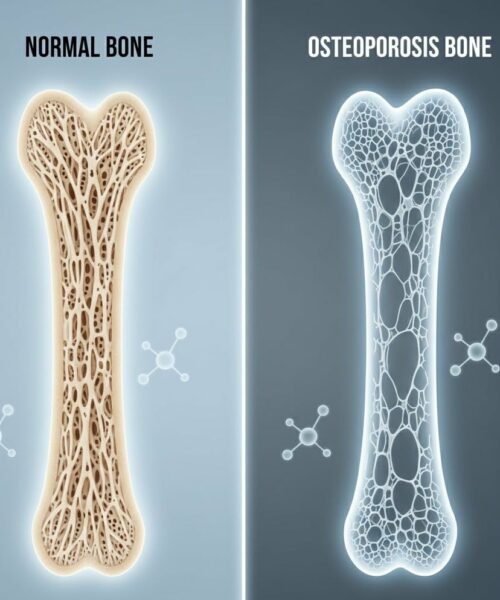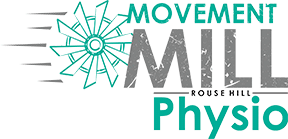Women’s health is a lifelong journey that evolves with every age and stage — from adolescence to menopause and beyond. While many women prioritize their families, careers, and responsibilities, their own health concerns often takes a back seat. Yet, awareness and preventive women’s health care are powerful tools that can help detect potential issues early and improve long-term well-being. These common women’s health issues can be managed better with the right education and support.
Let’s explore some of the most common health concerns women face today, backed by research and practical strategies to stay proactive.
1. Heart Disease: The Silent Threat
Heart disease remains the leading cause of death among women worldwide and is one of the most serious women’s health concerns globally. According to the World Heart Federation, cardiovascular disease claims the lives of nearly one in three women globally. Unfortunately, many women are unaware of their risk until symptoms appear — and these symptoms often differ from men’s. This makes heart disease one of the most serious health problems and significant women’s health concerns.
Common warning signs:
- Unusual fatigue, shortness of breath, or lightheadedness
- Pain in the jaw, back, or neck (not always chest pain)
- Swelling in the legs or sudden changes in endurance
Why it matters:
Estrogen provides some natural protection before menopause, but after it declines, the risk of heart disease rises sharply. Women with diabetes, obesity, or a sedentary lifestyle face even higher risk.
What helps:
Maintain a balanced diet rich in whole grains, fruits, and healthy fats, exercise regularly, quit smoking, and manage blood pressure and cholesterol through routine checkups.
2. Breast and Reproductive Cancers
Breast cancer continues to be the most commonly diagnosed cancer among women. The World Health Organization estimates over 2.3 million new cases annually. Early detection drastically improves survival rates — up to 90% when found in early stages. These cancers are considered major women’s health conditions globally.
Gynecologic cancers, such as cervical, uterine, and ovarian cancer, also remain major women’s health concerns and require consistent screening and awareness.. Cervical cancer, though preventable, still ranks among the top causes of cancer deaths in low- and middle-income countries.
What women should know:
- Regular mammograms and Pap smears save lives.
- HPV vaccination can prevent most cervical cancers.
- Self-awareness — noticing lumps, unusual discharge, or bleeding — can catch warning signs early.
Prevention through lifestyle:
Maintaining a healthy weight, limiting alcohol, and eating antioxidant-rich foods all help reduce cancer risk and support women’s wellness.
3. Reproductive Health and Fertility Issues
Reproductive health isn’t just about pregnancy — it also encompasses menstrual health, hormonal balance, and fertility. Conditions like polycystic ovary syndrome (PCOS) and endometriosis affect millions of women, often going undiagnosed for years. These are among the most common women’s health conditions affecting younger women.
Key facts:
- Around 1 in 10 women of reproductive age are estimated to have PCOS.
Signs to look for:
- Irregular periods, excessive hair growth, or unexplained weight gain (PCOS)
- Chronic pelvic pain, pain during menstruation or intercourse (endometriosis)
Management:
While these conditions can’t always be “cured,” they can be managed through lifestyle adjustments, balanced diet, regular exercise, and medical guidance. Early diagnosis helps prevent complications like diabetes, infertility, and emotional stress.
4. Mental Health and Emotional Well-Being
Depression, anxiety, and stress-related disorders are disproportionately common among women. Hormonal fluctuations — during puberty, pregnancy, postpartum, and menopause — can amplify emotional vulnerability. These mental health challenges are significant women’s health problems that are often overlooked.
Insightful data:
Why this matters:
Mental health influences every other aspect of physical health — from heart function to immunity. Ignoring symptoms can worsen physical ailments, sleep, and overall quality of life.
Simple mental wellness habits:
- Prioritize consistent sleep and balanced nutrition
- Stay physically active — exercise releases mood-stabilizing endorphins
- Seek therapy or support groups when needed
- Set healthy boundaries and practice mindfulness
5. Bone Health and Osteoporosis
After menopause, women experience a significant drop in estrogen — a hormone crucial for maintaining bone density. This is why osteoporosis, a condition that weakens bones, is far more common in women than men.
Facts to know:
- About 1 in 3 women over age 50 will experience an osteoporotic fracture.
- Bone loss can begin as early as your 30s if calcium and vitamin D intake are inadequate.
Prevention tips:
- Engage in regular strength training and weight-bearing exercise.
- Eat foods rich in calcium (dairy, leafy greens, almonds) and vitamin D (fatty fish, fortified foods).
- Avoid smoking and excessive caffeine or alcohol, which deplete bone minerals.

6. Metabolic and Hormonal Disorders
Hormonal imbalances and metabolic issues such as thyroid disorders and type 2 diabetes affect women differently.
Women are up to 10 times more likely to develop thyroid disease than men, and hormonal imbalances often lead to fatigue, mood swings, and weight fluctuations.
Similarly, diabetes affects how the body processes glucose — and women with diabetes have a greater risk of heart disease and stroke than men with the same condition.
How to stay in control:
- Keep a balanced diet with limited refined sugar and processed foods.
- Get thyroid function and blood sugar levels checked regularly.
- Prioritize consistent exercise and stress management to regulate metabolism.
Pilates isn’t about quick transformations—it’s about creating lasting alignment, balance, and body control. The more consistent and mindful your practice, the greater and more sustainable your progress will be.
If you’re ready to take your movement to the next level, consider partnering with The Movement Mill. Their team of experienced physiotherapists and exercise professionals combine clinical expertise with personalised Pilates-based programs designed to improve posture, reduce pain, and build long-term strength. With guided support and evidence-based training, The Movement Mill helps you move better, feel stronger, and achieve lasting results.
7. Menopause and Hormonal Transition
Menopause isn’t an illness — it’s a natural phase — but it brings physical and emotional changes that can affect quality of life. Hot flashes, night sweats, mood shifts, and sleep disturbances are common.
Health implications:
- Post-menopause, the risk of osteoporosis, heart disease, and urinary issues increases.
- Weight gain and metabolic changes often occur due to slower metabolism and hormonal decline.
What helps:
- A nutrient-dense diet, rich in fiber and phytoestrogens (found in soy, flaxseed, and legumes).
- Regular exercise to support mood, sleep, and bone strength.
Talking with a healthcare professional about hormone therapy or natural alternatives if symptoms interfere with daily life.
8. Preventive Health and Lifestyle Habits
Preventive care is often overlooked, yet it’s one of the most effective ways to protect long-term women’s health concerns. health. Routine screenings, vaccinations, and regular health checkups can help detect risks early — before symptoms appear.
Core habits for lifelong health:
- Schedule annual wellness visits and screenings based on your age and risk factors.
- Stay physically active — even 30 minutes of brisk walking daily can lower the risk of many diseases by 30%.
- Eat a variety of whole foods, focusing on plant-based nutrition.
- Maintain social connections and manage stress effectively.
The Bigger Picture
Women’s health is deeply interconnected — what affects the body often influences the mind and vice versa. Whether it’s hormonal shifts, mental health challenges, or chronic diseases, the key lies in awareness, prevention, and early action.
Understanding your own body, staying informed about risk factors, and making small but consistent changes can add not just years to your life, but life to your years.
Final Thoughts: Empower Your Health Journey
True wellness isn’t defined by flawlessness — it grows through consistent progress, meaningful self-awareness, and a balanced approach to everyday living. When women choose to invest in their health, they’re not only caring for their present selves but also building strength, resilience, and confidence for the future.
At The Movement Mill, our purpose is to empower women with movement-based healing, personalised rehabilitation, and holistic wellness support. Through expert physiotherapy, tailored exercise programs, and evidence-backed education, we help women feel stronger, move better, and live with greater ease at every stage of life.
If you’re ready to take the next step toward a healthier, more balanced version of yourself, The Movement Mill , serving sydney and nearby suburbs is here to guide you with compassionate, expert women’s health care. Book your consultation today and start moving toward the wellness you deserve.
FAQs
What are the most common women’s health concerns women should be aware of?
The most common women’s health concerns include heart disease, breast cancer, cervical cancer, PCOS, endometriosis, thyroid disorders, mental health issues, and osteoporosis. These common women’s health issues affect women at different life stages, making regular screenings, lifestyle management, and early intervention essential for long-term women’s wellness and disease prevention.
How can women prevent common women’s health issues naturally?
Prevention of common women’s health issues starts with regular women’s health care checkups, balanced nutrition, consistent physical activity, stress management, and good sleep. Avoiding smoking, limiting alcohol, and including whole foods, calcium-rich sources, and vitamin D can significantly reduce women’s health problems such as heart disease, hormonal imbalance, and osteoporosis.
When should I seek medical help for women’s health problems like pain, fatigue, or irregular periods?
You should seek medical attention if you experience persistent symptoms such as chronic fatigue, pelvic pain, irregular periods, severe cramps, mood changes, or unexpected weight shifts. These could indicate deeper women’s health conditions like PCOS, endometriosis, thyroid issues, or metabolic disorders. Early women’s health care support helps prevent complications and improves long-term health outcomes.
How does exercise, like Pilates, support women’s wellness and long-term health?
Exercise—especially Pilates—plays a major role in women’s wellness by improving posture, building strength, enhancing mobility, reducing pain, and supporting hormonal balance. It’s highly beneficial for managing women’s health concerns such as lower back pain, stress, menopause-related changes, and metabolic issues. Regular movement also improves heart health, bone density, and emotional well-being, making it a core part of healthy women’s health care routines.

